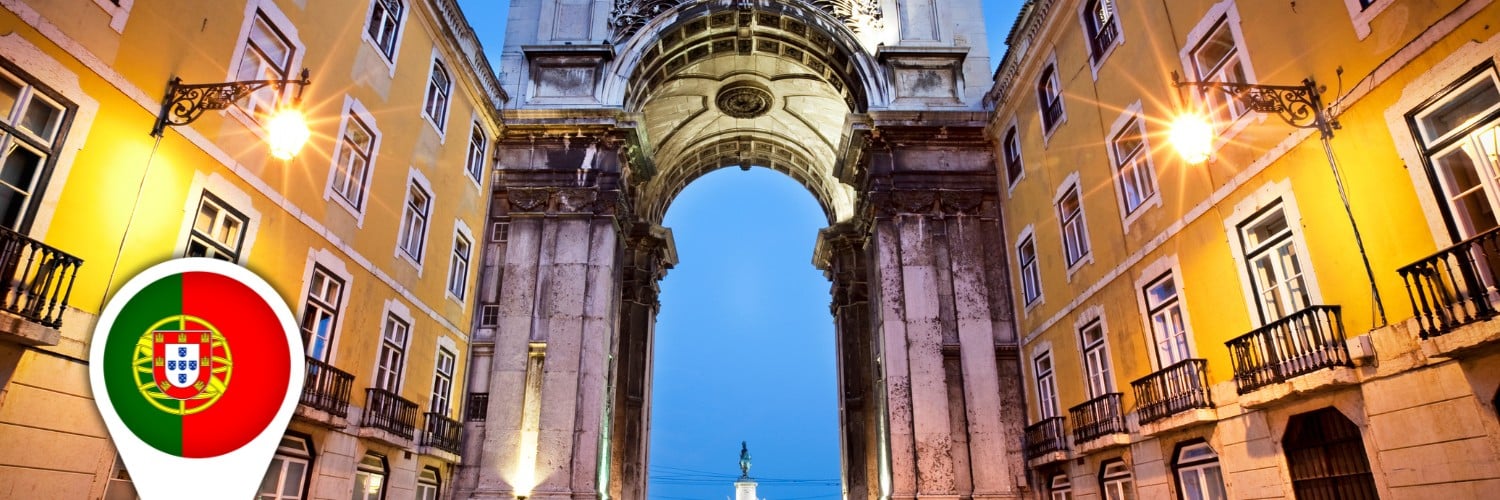Portugal’s Housing Market

Over the past decade, the Portuguese housing market has grown exponentially and experienced a significant transformation, making it a highly attractive option for both residents and investors.
Offering a wide range of properties—from urban apartments to rural homes and luxury condos by the beach—Portugal has become a haven for foreign investment due to its favorable conditions.
Popular Regions
Offering a mix of historic charm, modern amenities, and attractive lifestyle, Lisbon, Porto, and Algarve are the most sought-after locations in Portugal for property purchases and rentals.
- Lisbon: The capital offers a mix of historic buildings, modern apartments, and luxury properties with excellent amenities, including cultural attractions, restaurants, schools, and healthcare facilities.
- Porto: Known for its vibrant cultural scene, Porto offers a range of properties, from renovated townhouses to modern apartments. Its growing status as a tech hub makes Porto an attractive destination for many professionals and investors.
- Algarve: Famous for its stunning beaches, golf resorts, and sunny climate, the Algarve attracts both tourists and retirees looking for a relaxed lifestyle.
- Central Portugal: Areas like Coimbra and the Silver Coast offer more affordable housing options compared to big cities like Lisbon and the Algarve, and they are ideal for those seeking a quieter lifestyle with easy access to natural landscapes and historic towns.
Portugal Visas & Immigration
We Can Help!
#1 Contact us to get a free quote, or
#2 Schedule a Consultation now.
Market Trends

Portugal’s property prices have been increasing significantly, particularly in major cities and tourist areas, creating a housing problem. As foreign investors continue to arrive in Portugal, given the country’s favorable investment conditions, quality of life, and government incentives, prices for both rentals and purchases have notably risen in the past few years, making it almost unbearable for locals to rent or buy a house.
Of course, affordable options are still available in less populated regions and rural areas away from the big city centers. This disparity is not necessarily bad, offering opportunities for different types of buyers, from those seeking high-end urban properties to those looking for more budget-friendly options in quieter locales.
Renting in Portugal
The influx of people and capital, particularly in major cities like Lisbon, Porto, and Algarve, has made the Portuguese rental market highly competitive. Demand, driven by not only locals but also expatriates and investors, has driven the prices up significantly and reduced the available renting options. Still, excellent rental options are available in Portugal.
If you plan to lease an apartment or house in Portugal, remember that rental contracts are typically signed for one year but can sometimes be negotiated for shorter and, definitely, more extended periods. Make sure the contract you are signing for your Portuguese lease has been written and registered with the tax authorities so that you can receive proof of address in the country. This is important if you plan to apply for a visa or open a bank account, for instance.
Portugal Visas & Immigration
We Can Help!
#1 Contact us to get a free quote, or
#2 Schedule a Consultation now.
What a U.S. Citizen Needs to Buy a House in Portugal

To buy a house in Portugal, a U.S. citizen needs:
- Portuguese Fiscal Number (Número de Identificação Fiscal, NIF), which you can obtain at a local tax office, known as Serviço das Finanças, or with the assistance of a Portuguese layer. This is a crucial first step to buying a house, as you need a Portuguese fiscal address to open a local bank account and for the government to send you your tax payment information.
- Bank account opening is not a mandatory step of the buying process but a highly recommended one as it simplifies fund transfer. To open a bank account in Portugal, you need:
- NIF
- Passport
- Proof of Address
- Proof of income
- Legal representation is also not a required step, but it can help you easily navigate the entire purchase process and conduct the necessary due diligence on the property. They can also assist with obtaining the necessary documentation and dealing with all the bureaucratic issues of buying a house in Portugal.
- Property selection is the next stage and you can do this through local or international real estate agents or by looking at some local platforms for house hunting in Portugal, including sites like Casas Sapo and Idealista, among others. After finding the property that meets your criteria, you will need to:
- Make a formal offer.
- (if the offer is accepted) Sign a promissory contract (Contra-Promessa de Compra e Venda or CPCV) – this is a binding agreement between buyer and seller and outlines all the terms and conditions of the sale, such as purchase price, payment schedule (if in place), and completion date.
- Deposit 10-30% of the purchase price
- The final step is the signature of the Deed of Purchase (Escritura), which is always done in front of a notary. This stage is when the funds and property ownership are officially transferred from the seller to the buyer, and it’s when various fees and taxes need to be paid, including:
- IMT (Imposto Municipal sobre Transmissões) – Property transfer tax, varying based on property value and type.
- Stamp Duty (Imposto de Selo) – Typically 0.8% of the purchase price.
- Notary and Registration Fees – Costs for the notary and registering the property with the Land Registry.
Investment Opportunities for Foreigners

As an investor or an expat, the Portuguese housing market is considered a safe investment destination. The stability of the Portuguese economy, the low interest rates, and the relatively low property prices (compared to other European destinations) make it a desirable market for both long-term investment and income opportunities.
With Portugal’s high tourist rates, platforms like Airbnb have become quite popular, especially in tourist areas, and these can be a great way for you as a property owner to get some additional income stream for your Portuguese apartment or house. However, bear in mind that regulations on short-term rentals have become stricter in the last few years to address housing shortages and community concerns.
Portugal Visas & Immigration
We Can Help!
#1 Contact us to get a free quote, or
#2 Schedule a Consultation now.
Frequent Questions

1. What has caused the growth in Portugal’s housing market?
The growth is driven by foreign investment, favorable living conditions, and government incentives.
2. Which regions in Portugal are popular for property investment?
Lisbon, Porto, Algarve, and Central Portugal, including areas like Coimbra and the Silver Coast.
3. What types of properties are available in Portugal?
Options include urban apartments, rural homes, luxury condos by the beach, and more.
4. What are the main attractions of Lisbon for property buyers?
Lisbon offers a mix of historic buildings, modern apartments, luxury properties, and excellent amenities like cultural attractions, restaurants, schools, and healthcare facilities.
5. Why is Porto an attractive destination for property investment?
Porto’s vibrant cultural scene and growing status as a tech hub offer opportunities for renovated townhouses and modern apartments.
6. What makes the Algarve a popular location for property purchases?
The Algarve is famous for its stunning beaches, golf resorts, and sunny climate, attracting tourists and retirees.
7. How has foreign investment impacted Portugal’s housing market?
It has increased property prices and rental demand, particularly in major cities and tourist areas.
8. Are there affordable housing options in Portugal?
Yes, affordable options are available in less populated regions and rural areas away from major city centers.
9. What should one expect when renting a property in Portugal?
Rental contracts are typically for one year but can be negotiated for different periods. Renting in major cities is highly competitive.
10. What is required for a U.S. citizen to buy a house in Portugal?
A Portuguese Fiscal Number (NIF), a local bank account, and potentially legal representation to assist with the purchase process.
11. What documentation is needed to open a bank account in Portugal?
NIF, passport, proof of address, and proof of income.
12. Is legal representation necessary when buying property in Portugal?
While not required, it is recommended for navigating the purchase process and conducting due diligence.
13. What steps are involved in the property buying process?
Select a property, make a formal offer, sign a promissory contract, deposit 10-30% of the purchase price, and sign the Deed of Purchase.
14. What fees and taxes are involved in buying property in Portugal?
Property transfer tax (IMT), Stamp Duty, and Notary and Registration Fees.
15. What investment opportunities are available for foreigners in Portugal’s housing market?
Long-term investments, income opportunities through platforms like Airbnb, and benefiting from Portugal’s stable economy and low interest rates.
16. How have regulations on short-term rentals changed in Portugal?
Regulations have become stricter to address housing shortages and community concerns.
17. What is the typical workweek in Portugal?
The standard workweek is 40 hours, Monday to Friday, from 9:30 a.m. to 6:30 p.m., with more flexibility in the tech sector and startups.
18. What are the key benefits of working in Portugal?
Paid vacation days, sick leave, parental leave, and social security contributions.
19. How do property prices in Portugal compare to other European countries?
Property prices in Portugal are relatively low compared to other European destinations, although they have been increasing.
20. Is Portugal a safe investment destination for real estate?
Yes, Portugal’s housing market is considered stable and offers favorable investment conditions for long-term gains.
Portugal Visas & Immigration
We Can Help!
#1 Contact us to get a free quote, or
#2 Schedule a Consultation now.

